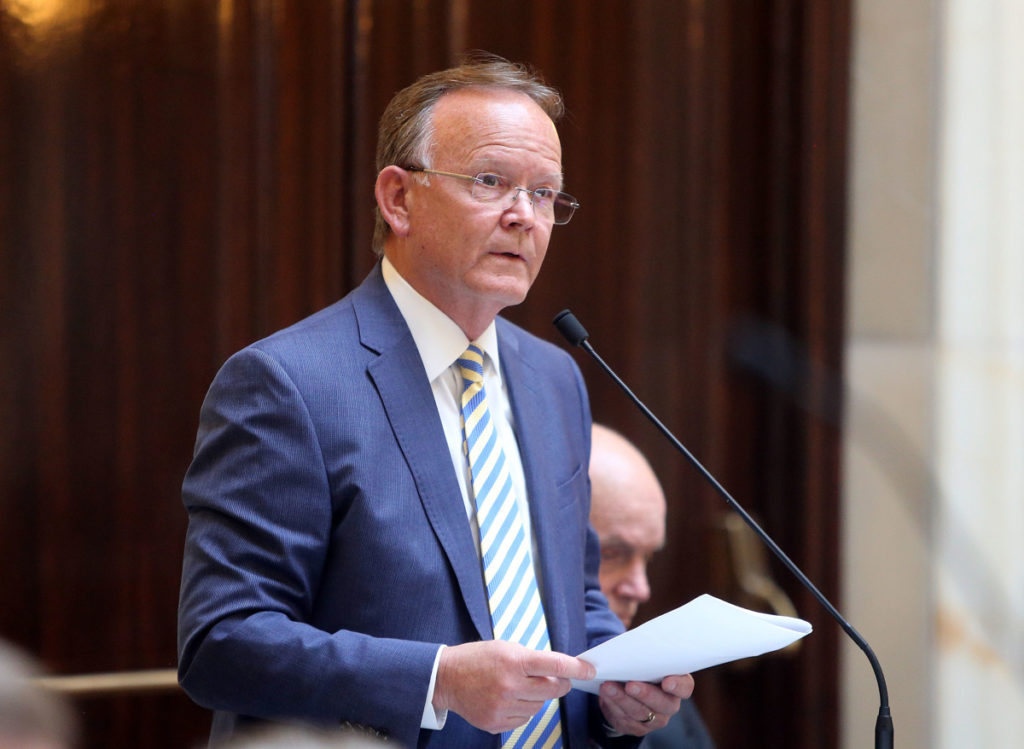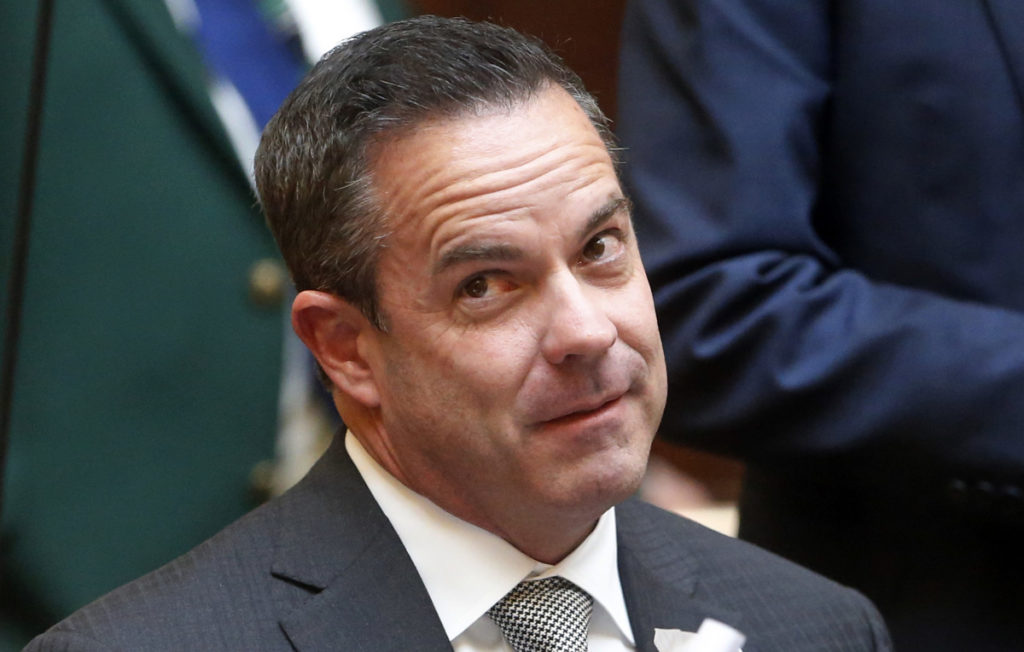SALT LAKE CITY — The voter-approved ballot initiative expanding Medicaid coverage to some 150,000 low-income Utahns would be repealed and replaced by a more limited plan under a bill being drafted for the 2019 Legislature.
“We’re going to make the program work within the money the proposition provided,” the bill’s sponsor, Sen. Allen Christensen, R-North Ogden, told the Deseret News Tuesday.

He said the funding provided by Proposition 3 falls short.
It raises the state’s 4.7 percent sales tax rate 0.15 percent in April — money that’s expected to bring $800 million in federal matching funds to the state for the full Medicaid expansion available under the Affordable Care Act.
Christensen said the sales tax increase will only collect $88 million the first year, although $105 million is needed. By 2023, he said legislative analysts have calculated the expansion program would fall $45 million short.
So the plan he and Rep. Jim Dunnigan, R-Taylorsville, are putting together for legislative leadership limits coverage to those earning anything below the federal poverty level — about $12,000 — instead of 138 percent of that amount, which would be less than $17,000.
But Christensen said the state will once again seek a federal waiver from the Trump administration to get the same 90:10 federal funding match offered to states that accept full expansion — even though they’ve tried and failed before.
The 2018 Utah Legislature approved a similar plan to partially expand Medicaid coverage to about 70,000 Utahns. But the federal government never approved the needed waiver so the coverage never became available.

From 2017 to 2018 there was a 78 percent increase among high school students using e-cigarettes. A 2017 Utah survey found…
Rep. Ray Ward, R-Bountiful, a longtime supporter of expanding Medicaid coverage, said there’s no reason to believe the administration will be ready to approve a waiver. He said an answer could take nearly a year.
“The voters clearly wanted people to get coverage and that’s really important,” Ward said. “Whatever path we chose to go forward needs to not repeal coverage for those people. … It is not acceptable to have a temporary repeal.”
Christensen, however, sees it differently.
“The other way, we would put a bunch of people on Medicaid and turn around and take them back off again,” the senator said, adding that he hopes to work out a “default” that would permit the expansion to take place if the White House fails to act.
“We’re going to expand Medicaid, come hell or high water, or the Trump administration,” Christensen said, promising new “safeguards” for the administration will be built into the bill, including enrollment caps.
Last July, the New York Times reported that the White House was warned in a confidential memo that there was a “significant risk” Utah voters would approve full Medicaid expansion without action on the waiver by the Trump administration.
The memo said that the U.S. Department of Health and Human Services “believes allowing partial expansion would result in significant savings over the 10-year budget window compared to full Medicaid expansion by all,” the newspaper reported.
But President Donald Trump chose not to make a decision on any waivers. Among the administration opponents of allowing a partial expansion, the Times said, was White House budget director Mick Mulvaney, now also acting chief of staff.
Christensen said the bill is expected to be heard in committee on Jan. 29, the second day of the upcoming legislative session. Other bills that would simply repeal the ballot initiative are also being drafted, he said, declining to name those sponsors.
Details of the much-anticipated legislation comes as the loudest applause at United Way’s legislative preview breakfast Tuesday was for the “remarkable step” taken by voters to approve Medicaid expansion.
United Way President and CEO Bill Crim told the Grand America Hotel ballroom audience that the organization believes Utahns who need the federal program should “receive it as planned in April.”
The Legislature’s incoming Republican leaders, Senate President Stuart Adams of Layton and House Speaker Brad Wilson of Kaysville, offered no specifics during a panel discussion but both expressed concerns about the cost.
“We need to be careful with what we do,” Adams said, warning that if the Medicaid budget expands, money might be diverted from schools. He said lawmakers need “to make sure we don’t bankrupt ourselves.”
Wilson promised any plan would “look very similar to what the voters passed, if we do anything,” noting Utahns made it clear in the election they want coverage for everyone and were willing to increase their taxes to pay for the program.
“But we also have to remember the Legislature has a constitutionally mandated responsibility to balance the budget every year. So we’ve got to look at that and make sure we have some safeguards in place,” he said.
The incoming speaker warned that funding for other social services needs as well as education could be jeopardized and said any action needs to be done “in a way that it doesn’t become a budget buster like it’s done in some other states.”
Democratic House and Senate leaders backed the expansion plan approved in November.
House Minority Leader Brian King, D-Salt Lake City, got a round of applause for saying Utah “can’t afford to wait” on any changes being approved by the federal government before extending coverage.
King said lawmakers already have missed the opportunity to get hundreds of millions of dollars available under the more generous federal match offered for Medicaid expansion “because we were not courageous enough. We were not smart enough.”
The Salt Lake County Council voted later Tuesday to approve a resolution supporting the voter-approved Medicaid expansion and urging the Legislature against doing anything different.
County Councilwoman Jenny Wilson — a Democrat who ran unsuccessfully against now Sen. Mitt Romney — sponsored the resolution, calling the Legislature’s yearslong failure to fully expand Medicaid one of its “biggest misses.”
County Council Republicans voted in favor of the resolution, but some gave what Councilman Steve DeBry called a “tepid yes,” expressing hesitance because of future financial costs of full expansion.
